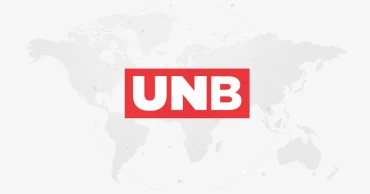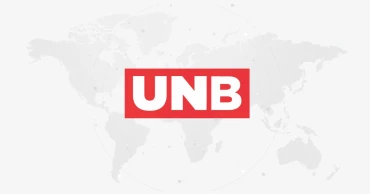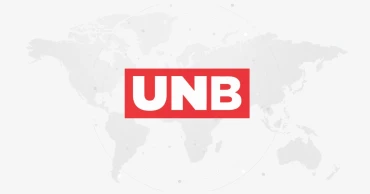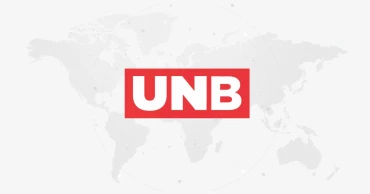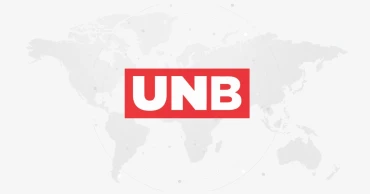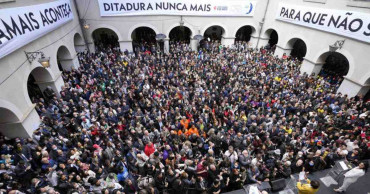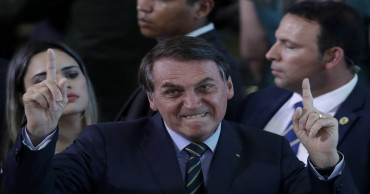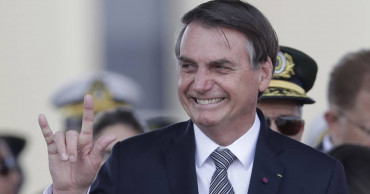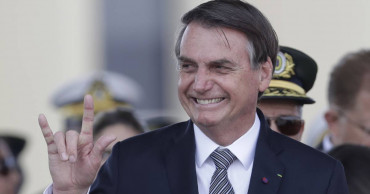Bolsonaro
5 questions on Bolsonaro supporters storming Brazil's Congress
Thousands of far-right supporters of former Brazilian President Jair Bolsonaro stormed the country’s Congress, Supreme Court and presidential palace on Jan. 8, 2023.
In images similar to those from the Jan. 6, 2021, assault on the U.S. Capitol, demonstrators were seen overwhelming and beating police while breaching the security perimeter of the buildings.
It comes weeks after Bolsonaro was ousted in an election that saw the return of leftist former President Luiz Inácio Lula da Silva. The Conversation asked Rafael Ioris, an expert on Brazilian politics at the University of Denver, to explain the significance of the attack and what could happen next.
Who was behind the storming of the Brazilian Congress?
What we saw was thousands of hardcore supporters of Bolsonaro – those who share his extreme right-wing agenda – attempting to take matters into their own hands after the recent election.
Even though Bolsonaro wasn’t there in the capital while the attack took place – he was in Florida – I believe he is ultimately responsible for what occurred. While he was in power he encouraged distrust in political institutions, advocating the closure of Congress and attacking the Supreme Court – two of the institutions targeted by demonstrators.
Others were also behind what happened. Protests have been taking place for weeks, and there are big funders of the demonstrations, such as large landowners and business groups who helped pay for the busing in of thousands of Bolsonaro supporters to the capital, Brasilia.
And then there is the role of the military. Leading military figures have been supportive of Bolsonaro’s extreme right agenda for a long time and even recently have displayed outright support for several pro-coup demonstrations unfolding in different parts of the country in the lead-up to the attack.
The lack of security preventing the storming of key institutions in the capital also leads me to ask: Were they negligent, or were they complicit?
Read more: Brazil authorities seek to punish pro-Bolsonaro rioters
Can you expand on the role of the military?
Street security is not a responsibility of the armed forces, but the military’s continued support for Bolsanaro’s agenda has helped provide legitimacy for the holding of such views among members of the state-run military police. And it was the military police who were tasked with keeping the demonstrations in check in Brasilia.
The pro-Bolsonaro demonstrators are demanding a military intervention to overturn what they claim – with no evidence – to be a fraudulent election that saw Lula come to power.
Their hope is that senior members of the military – many of whom have expressed support for Bolsonaro and sympathy for the protest camps that have been set up near army bases – would support the push to oust Lula.
Brazil has a long history of the armed forces not accepting civilian rule. The last military coup was in 1964. Of course, circumstances are different now from then – when in the heat of the Cold War, the coup was supported by outside governments, including the U.S.
Bolsonaro cultivated close ties to the Brazilian military by moving key military people into positions in government. Right-wing generals friendly with Bolsonaro became ministers of defense, chief of state and even the minister of health at the height of the COVID-19 crisis. Moreover, it is estimated about 6,000 active military personnel were given jobs in nonmilitary positions in government in the last eight years.
Some generals in both the Navy and the Air Force especially have been supporting the protests. Since the election, you have had generals proclaim that demonstrations demanding military intervention were legitimate.
I think it is fair to say that segments of Brazil’s military were encouraging what happened.
But when it came down to it, the armed forces were quiet. The military may have nurtured the protest, but when it came to the idea of a traditional coup – tanks on the streets stuff – that just didn’t happen.
So would you characterize this as an attempted coup?
That is a central question. As events unfurled on Jan. 8, it looked more like a protest that got violent and out of hand – the level of destruction inside some of the buildings attests to that.
But it was weeks in the making and well financed, in that hundreds of buses were paid for to get Bolsonaro supporters to the capital. And the expressed aim of many protesters was military intervention. So in that sense, I would say it more akin to an attempted coup.
Read more: Pro-Bolsonaro rioters storm Brazil’s top government offices
What does the attack tell us about democracy in Brazil?
Brazil has been at a crossroads. The Bolsonaro presidency saw the country backslide on democracy, as trust in institutions eroded under attack from the president himself and through corruptions scandals. And close to half of the country voted for him despite his record of undermining democracy. But the election of Lula seems to indicate that even more want to rebuild democratic institutions in the country after four years of attack from Bolsonaro.
So this could be a turning point. The media in Brazil has come out strongly in denouncing the actions of demonstrators. In the coming days and weeks, there will be investigations into what happened, and hopefully some degree of accountability. What will be key is Lula’s ability to address the anti-democractic elements of the military.
Are comparisons to the Jan. 6 attack on the U.S. Capitol valid?
Trumpism and Bolsonarismo share a narrative of stolen elections, with supporters drawn from the right who support issues such as gun rights and traditional family structures.
An important difference is the role of the military. Although former military personnel were at the Jan. 6 attack in D.C., top U.S. military figures condemned it. Nor was the aim in the U.S. to see military intervention, unlike the Jan. 8, 2023, attack in Brasilia.
But there are clear parallels – in both we saw extreme right-wing, powerful groups and individuals refusing to accept the direction of a country and trying to storm institutions of power.
Now I’m wondering if there will also be parallels in what happens after the attack.
In the U.S., authorities have done a good job punishing a lot of people involved. I’m not sure we will see the same in Brazil, as they might need to confront powerful groups within the military and police forces around the country. So, democratic actors within and outside of the county will be essential in supporting the task of defending democracy in Brazil.
(This article is republished from The Conversation under a Creative Commons license. The Conversation is an independent and nonprofit source of news, analysis and commentary from academic experts.)
3 years ago
Days before new president, old divisions tearing at Brazil
Trumpets and snares will play Brazil’s national anthem at Luiz Inácio Lula da Silva’s swearing-in on Jan. 1. Then, one will hear a different song on the streets, its lyrics taking a shot at outgoing President Jair Bolsonaro.
“It is time for Jair, it is time for Jair ... to go away!” the lyrics say. “Pack your bags, hit the road and go away!”
When Lula clinched his election win over Bolsonaro on Oct. 30, tens of thousands of people sang the familiar tune throughout the night, pushing the song to the top of Spotify’s list in Brazil and showing one way that many Brazilians aren’t ready to extend olive branches.
Healing Brazil’s divided society will be easier said than done. Lula’s Cabinet appointments thus far favoring leftists and stalwarts of his Workers’ Party are turning off those who trusted the divisive 77-year-old to govern alongside moderates, and who joined forces after Bolsonaro repeatedly tested the guardrails of the world’s fourth-biggest democracy.
“Governing Brazil means deals with agribusiness, evangelicals, former Bolsonaro allies. It can be frustrating for half-hearted Lula voters, but that’s what they have before them,” said Carlos Melo, a political science professor at Insper University in Sao Paulo.
Of course, Bolsonaro’s far-right backers are hardly the picture of post-election bonhomie. Many reject results of the vote and remain camped outside military buildings nationwide, demanding that Lula’s inauguration be impeded.
Brazil’s October election was its closest in more than three decades, pitting two arch-rivals against one another. In Lula’s victory speech on Oct. 30, he declared that “there are not two Brazils,” as tens of thousands gathered outside his hotel in Sao Paulo to celebrate his victory and Bolsonaro’s defeat.
A hopeful sign for Lula’s bridge-building ambitions came days later, with leftists and moderates once again donning the nation’s yellow soccer jersey to cheer on their team at the World Cup. The shirt for almost a decade has been an anti-left symbol and often featured in protests against Lula and in favor of Bolsonaro.
Lula and his allies wore the yellow shirt, too, in an effort to reclaim it; he posted photos of himself to social media, and said green and yellow “are the colors of 213 million people who love this country.” Salesman Elias Gaspar said yellow jerseys started flying off his rack as the team’s flamboyant performances trickled in.
“Before the World Cup I would sell on average six blue shirts and four yellow out of every ten,” Gaspar, 43, said on Dec. 4. “Now it is almost all yellow.”
Read more: Brazil election: Lula defeats Bolsonaro to become president again
Soccer was a short-lived unifying force. Brazil exited the tournament earlier than expected after a surprise penalty shootout loss to Croatia in the quarterfinals, and most Brazilians stuffed their jerseys back in their drawers. Bolsonaro’s backers are the only ones still sporting the national colors.
Lula has avoided inflaming tensions, mostly refraining from public attacks against Bolsonaro or his supporters, and instead focusing speeches on helping the most disadvantaged Brazilians once he returns to the office he held from 2003 to 2010. At times, though, us-versus-them comments have slipped past his lips. On Dec. 22, while announcing new ministers, he said Bolsonarismo remains alive and angry among those who refuse to recognize the electoral loss, so it must be defeated on Brazil’s streets.
For defense minister, Lula picked conservative José Múcio Monteiro after four years of Bolsonaro striving to secure the armed forces’ allegiance.
Other Lula appointments seem crafted to please his base and party, such as Anielle Franco, sister of slain Rio de Janeiro city councilwoman Marielle Franco, for minister of racial equality. He also tapped long-time ally Aloizio Mercadante to head the country’s development bank -- precisely the sort of position business leaders expected to remain clear of Workers’ Party hands.
Gleisi Hoffmann, the chairwoman of Lula’s Workers’ Party, said building a Cabinet would be a challenge even if Lula were only selecting progressives. Complicating decisions further is the fact that some would-be ministers are likely 2026 presidential candidates, as Lula has indicated he won’t run for reelection.
“We have our differences within the Workers’ Party, now go figure what happens when we bring a dozen other parties,” Hoffmann said on her social media channels Dec. 16. “It is a puzzle, it takes time.”
That may help explain why the number of ministries will nearly double, to 37.
Centrist endorsements from former environment minister Marina Silva and Simone Tebet, who finished third in the presidential race’s first round, brought in votes from Brazil’s moderates -- a demographic that grew leery of Lula since the sprawling Car Wash corruption probe landed him in jail in 2018. With their support, he beat Bolsonaro by less than two percentage points. Many expected them to be quickly announced as ministers, but negotiations have dragged on.
Thomas Traumann, a political consultant, said delays reflect the fact the president-elect has had a central role in negotiations for positions.
“People who helped him like Marina and Simone will have less stature than they would have had they been appointed shortly after he won,” Traumann said. “Lula’s luck is that moderates will view his administration like many leftist Democrats see (U.S. President Joe) Biden: they might not like what they see, but it is better than the alternative.”
Biden’s attempt to bridge the political chasm could offer an instructional, albeit dispiriting, model, said Brian Ott, a professor of communication at Missouri State University who has researched the stratifying impact of social media on American political discourse.
Read more: Brazil election body rejects Bolsonaro's push to void votes
Early in his presidency, Biden did not shy away from the fact that he was governing in a polarized country and played up his bonafides as a throwback to a different era when Democrats and Republicans could battle on the Senate floor before repairing to the dining room to hammer out compromises.
“The problem that Biden faces and the problem that politicians face in 51% countries like Brazil is there may no longer be smart strategies to deliver big tent messages without alienating your base,” said Ott. “We are now in a period where politics is so intensely, deeply divided culturally, where people don’t have to be exposed to different points.”
On Dec. 22, Lula named 16 ministers, bringing his total thus far to 21. Neither Tebet nor Silva are among them.
“It is harder to assemble a government than to win elections,” he said while counseling his appointees to hire staffers from diverse backgrounds. “We’re trying to make a government that, as much as we can, represents the political forces that participated in our campaign.”
He added that people who helped and haven’t yet been named will be taken into account, and are owed a debt for “daring to stick their necks out to confront fascism.”
Still, many new Lula voters already feel inclined to jump ship. One is Thereza Bittencourt, 65, who spoke at a military club in Rio and said initial signs worry her.
“I took a lot of criticism from my friends at the club because I voted for Lula. All of them chose Bolsonaro. I told them the management of the economy would be better,” Bittencourt said as she sipped her caipirinha. “If I only see members of the Workers’ Party in the government, goodbye.”
3 years ago
Bolsonaro supporters clash with police in Brazil's capital
Supporters of Brazilian President Jair Bolsonaro clashed with police Monday, setting fire to several vehicles and allegedly attempting to invade the federal police’s headquarters in capital city Brasilia.
Images of chaos as a small number of protesters, many wearing the yellow and green of Brazil's flag that has come to symbolize Bolsonarismo, roamed the city, circulated on local television channels and social media.
Brasilia's public security secretariat said in a statement that clashes broke out after police carried out an arrest warrant. Earlier that day, Supreme Court justice Alexandre de Moraes had ordered the temporary arrest of José Acácio Serere Xavante, suspected of participating in anti-democratic protests.
Read more: Brazilian protests intensify; Bolsonaro stays silent
Since Bolsonaro lost re-election to da Silva on Oct. 30, many of his supporters have gathered outside military barracks across the country refusing to concede defeat and asking for the armed forces to intervene. Earlier Monday, the nation's electoral authority awarded da Silva and his vice president an official certification, sealing their victory.
Bolsonaro, who has repeatedly claimed that the nation's electronic voting system is prone to fraud and has not conceded defeat, told supporters Friday that his political future was in their hands.
“The depredation and attempted invasion of the Federal Police building in Brasilia is unacceptable,” said Flavio Dino, future Justice and Public Security Minister in the upcoming administration of President-elect Luiz Inácio Lula da Silva.
Read more: Brazil election body rejects Bolsonaro's push to void votes
The leader of the opposition in the Senate, Randolfe Rodrigues, said some protestors, whom he called “terrorists,” had concentrated around the hotel where da Silva is staying.
Police in full gear were rushed to the Federal Police’s headquarters as back up, as officers had to use stun grenades and rubber bullets, local media reported. Police also blocked several avenues and streets across Brasilia
Protesters elsewhere set at least one bus on fire and were seen gathering metal barriers.
3 years ago
Brazilian protests intensify; Bolsonaro stays silent
The two men were sitting at a bar on Nov. 21, sipping drinks for relief from the scorching heat of Brazil’s Mato Grosso state, when police officers barged in and arrested them for allegedly torching trucks and an ambulance with Molotov cocktails.
One man attempted to flee and ditch his illegal firearm. Inside their pickup truck, officers found jugs of gasoline, knives, a pistol, slingshots and hundreds of stones — as well as 9,999 reais (nearly $1,900) in cash.
A federal judge ordered their preventive detention, noting that their apparent motive for the violence was “dissatisfaction with the result of the last presidential election and pursuit of its undemocratic reversal,” according to court documents reviewed by The Associated Press.
For more than three weeks, supporters of incumbent President Jair Bolsonaro who refuse to accept his narrow defeat in October’s election have blocked roads and camped outside military buildings in Mato Grosso, Brazil’s soy-producing powerhouse. They also have protested in other states across the nation, while pleading for intervention from the armed forces or marching orders from their commander in chief.
Since his election loss, Bolsonaro has only addressed the nation twice, to say that the protests are legitimate and encourage them to continue, as long as they don’t prevent people from coming and going.
Bolsonaro has not disavowed the recent emergence of violence, either. He has, however, challenged the election results — which the electoral authority’s president said appears aimed at stoking protests.
While most demonstrations are peaceful, tactics deployed by hardcore participants have begun concerning authorities. José Antônio Borges, chief state prosecutor in Mato Grosso, compared their actions to that of guerrilla fighters, militia groups and domestic terrorists.
Mato Grosso is one of the nation’s hotbeds for unrest. The chief targets, Borges says, are soy trucks from Grupo Maggi, owned by a tycoon who declared support for President-elect Luiz Inácio Lula da Silva. There are also indications that people and companies from the state may be fueling protests elsewhere.
Road blockades and acts of violence have been reported in the states of Rondonia, Para, Parana and Santa Catarina. In the latter, federal highway police said protesters blocking highways have employed “terrorist” methods including homemade bombs, fireworks, nails, stones and barricades made of burnt tires.
Read more: Security agencies will act, if vandalism is there in the name of protests, says Home Minister
Police also noted that roadblocks over the weekend were different from those carried out immediately after the Oct. 30 runoff election, when truckers blocked more than 1,000 roads and highways across the country, with only isolated incidents.
Now, most acts of resistance are taking place at night, carried out by “extremely violent and coordinated hooded men,” acting in different regions of the state at the same time, federal highway police said.
“The situation is getting very critical” in Mato Grosso state, chief state prosecutor Borges told the AP. Among other examples, he noted that protesters in Sinop, the state’s second most populous city, this week ordered shops and businesses to close in support of the movement. “Whoever doesn’t shut down suffers reprisals,” he said.
Since the vote, Bolsonaro has dropped out of public view and his daily agenda has been largely vacant, prompting speculation as to whether he is stewing or scheming.
Government transition duties have been led by his chief of staff, while Vice President Hamilton Mourão has stepped in to preside over official ceremonies. In an interview with newspaper O Globo, Mourão chalked up Bolsonaro’s absence to erysipelas, a skin infection on his legs that he said prevents the president from wearing pants.
But even Bolsonaro’s social media accounts have gone silent – aside from generic posts about his administration, apparently from his communications team. And the live social media broadcasts that, with rare exception, he conducted every Thursday night during his administration have ceased. The silence marks an abrupt about-face for the bombastic Brazilian leader whose legions of supporters hang on his every word.
Still, demonstrators, who have camped outside military barracks across Brazil for weeks, are certain they have his tacit support.
“We understand perfectly well why he doesn’t want to talk: They (the news media) distort his words,” said a 49-year-old woman who identified herself only as Joelma during a protest outside the monumental regional military command center in Rio de Janeiro. She declined to give her full name, claiming the protest had been infiltrated by informants.
Joelma and others say they are outraged with Bolsonaro’s loss and claim the election was rigged, echoing the incumbent president’s claims — made without evidence — that the electronic voting system is prone to fraud.
Scenes of large barbecues with free food and portable bathrooms at several protests, plus reports of free bus rides bringing demonstrators to the capital, Brasilia, have prompted investigations into the people and companies financing and organizing the gatherings and roadblocks. The Supreme Court has frozen at least 43 bank accounts for suspicion of involvement, news site G1 reported, saying most are from Mato Grosso. Borges cited the involvement of agribusiness players in the protests, many of whom support Bolsonaro’s push for development of the Amazon rainforest and his authorization of previously banned pesticides. By contrast, President-elect da Silva has pledged to rebuild environmental protections.
Most recently, protesters have been emboldened by the president’s decision to officially contest the election results.
Read more: Brazil election body rejects Bolsonaro's push to void votes
On Tuesday, Bolsonaro and his party filed a request for the electoral authority to annul votes cast on nearly 60% of electronic voting machines, citing a software bug in older models. Independent experts have said the bug, while newly discovered, doesn’t affect the results and the electoral authority’s president, Alexandre de Moraes swiftly rejected the “bizarre and illicit” request.
De Moraes, who is also a Supreme Court justice, called it “an attack on the Democratic Rule of Law ... with the purpose of encouraging criminal and anti-democratic movements.”
On Nov. 21, Prosecutor-general Augusto Aras summoned federal prosecutors from states where roadblocks and violence have become more intense for a crisis meeting. Aras, who is widely seen as a Bolsonaro stalwart, said he received intelligence reports from local prosecutors and instructed Mato Grosso’s governor to request federal backup to clear its blocked highways.
Ultimately that wasn’t necessary, as local law enforcement managed to break up demonstrations and, by Monday night, roads in Mato Grosso and elsewhere were all liberated, according to the federal highway police. It was unclear how long this would last, however, amid Bolsonaro’s continued silence, said Guilherme Casarões, a political science professor at the Getulio Vargas Foundation university.
“With his silence, he keeps people in the streets,” Casarões said. “This is the great advantage he has today: a very mobilized, and very radical base.”
3 years ago
Brazil election body rejects Bolsonaro's push to void votes
The head of Brazil's electoral authority on Wednesday rejected the request from President Jair Bolsonaro and his political party to annul ballots cast on most electronic voting machines, which would have overturned the Oct. 30 election.
Alexandre de Moraes had issued a prior ruling that implicitly raised the possibility that Bolsonaro’s Liberal Party could suffer from such a challenge. He conditioned analysis of the request on the presentation of an amended report to include results from the first electoral round, on Oct. 2, in which the party won more seats in both congressional houses than any other, and he established a 24-hour deadline.
Earlier Wednesday, party president Valdemar Costa and lawyer Marcelo de Bessa held a press conference and said there would be no amended report.
“The complete bad faith of the plaintiff's bizarre and illicit request ... was proven, both by the refusal to add to the initial petition and the total absence of any evidence of irregularities and the existence of a totally fraudulent narrative of the facts,” de Moraes wrote in his decision hours later.He also ordered the suspension of government funds for the Liberal Party’s coalition until a fine of 23 million reais ($4.3 million) for bad faith litigation is paid.
Read more: Brazil election: Lula defeats Bolsonaro to become president againOn Tuesday, de Bessa filed a 33-page request on behalf of Bolsonaro and Costa citing a software bug in the majority of Brazil's machines — they lack individual identification numbers in their internal logs — to argue all votes they recorded should be nullified. De Bessa said that doing so would leave Bolsonaro with 51% of the remaining valid votes.
Neither Costa nor de Bessa have explained how the bug might have affected election results. Independent experts consulted by The Associated Press said that, while newly discovered, it doesn’t affect reliability and each voting machine is still readily identifiable through other means. In his ruling on Thursday, de Moraes noted the same.
He also wrote that the challenge to the vote appeared aimed at incentivizing anti-democratic protest movements and creating tumult, and ordered the investigation of Costa and the consultant hired to conduct an evaluation.
“De Moraes’ message to the political establishment is: the game is over. Questioning the result of the elections is not fair play, and people and institutions who do that will be punished harshly,” said Maurício Santoro, a political science professor at the State University of Rio de Janeiro.In the press conference on Wednesday, Costa said his intention is merely to prevent the results of the 2022 vote from haunting Brazil into the future.
The electoral authority on Oct. 30 ratified the victory of Bolsonaro’s nemesis, leftist former President Luiz Inácio Lula da Silva, and even many of the president’s allies quickly accepted the results. Protesters in cities across the country have steadfastly refused to do the same, particularly with Bolsonaro declining to concede.
Bolsonaro spent more than a year claiming Brazil’s electronic voting system is prone to fraud, without ever presenting evidence.
Read more: PM Sheikh Hasina congratulates Lula on winning Brazil electionThe South American nation began using an electronic voting system in 1996 and election security experts consider such systems less secure than hand-marked paper ballots, because they leave no auditable paper trail. But Brazil’s system has been closely scrutinized by domestic and international experts who have never found evidence of it being exploited to commit fraud.
3 years ago
Brazilians rally for democracy, seek to rein in Bolsonaro
Thousands of Brazilians flocked to a law school Thursday in defense of the nation’s democratic institutions, an event that carried echoes of a gathering nearly 45 years ago when citizens joined together at the same site to denounce a brutal military dictatorship.
In 1977, the masses poured into the University of Sao Paulo’s law school to listen to a reading of “A Letter to Brazilians,” a manifesto calling for a prompt return of the rule of law. On Thursday, they heard declarations defending democracy and the country’s elections systems, which President Jair Bolsonaro has repeatedly attacked ahead of his reelection bid.
While the current manifestos don’t specifically name Bolsonaro, they underscore the country’s widespread concern that the far-right leader may follow in former U.S. President Donald Trump’s footsteps and reject election results not in his favor in an attempt to cling to power.
“We are at risk of a coup, so civil society must stand up and fight against that to guarantee democracy,” José Carlos Dias, a former justice minister who helped write the 1977 letter and the two documents read Thursday, told The Associated Press.
In Sao Paulo, drivers stuck in traffic on one of the main roads to the law school applauded and honked as marching students chanted pro-democracy slogans. A huge inflatable electronic voting machine by the building’s main entrance bore the slogan “RESPECT THE VOTE”.
Read: Brazil confirms first monkeypox-related death
Inside, hundreds of guests gathered in the university’s Great Hall to hear speeches, while others stood outside watching on big flat screens.
The proclamations are contained in two letters. The first went online on July 26 and has been signed by nearly 1 million citizens, including ordinary people; popular musicians such as Caetano Veloso and Anitta; high-profile bankers and executives; and presidential candidates, among them former President Luiz Inácio Lula da Silva, who leads all polls ahead of the October election.
The second letter, published in newspapers last Friday, carries the endorsement of hundreds of companies in banking, oil, construction and transportation — sectors that traditionally have been averse to taking public political stances, said Carlos Melo, a political science professor at Insper University in Sao Paulo. They appear to have made an exception now, given the fear that any democratic backslide would be bad for business, he said.
“Democracy is important for the economy,” he said.
Bolsonaro’s commitment to democracy has been scrutinized since he took office, in large part because the former army captain has insistently glorified the country’s two-decade dictatorship, which ended in 1985. Earlier this year he met with Hungary’s autocratic leader, Viktor Orban, and Russia’s Vladimir Putin.
The president only spoke about the event late Thursday, saying it was crafted to support da Silva’s campaign. He also criticized the Workers’ Party for supporting leftist authoritarian regimes in Cuba and Venezuela.
For over a year, in actions that appear to be lifted directly from Trump’s playbook, Bolsonaro has claimed Brazil’s electronic voting machines are prone to fraud, though — like Trump — he never presented any evidence. At one point, he threatened that elections would be suspended if Congress didn’t approve a bill to introduce printed receipts of votes. The bill didn’t pass.
3 years ago
Brazil senators recommend Bolsonaro face charges over COVID
A Brazilian Senate committee recommended on Tuesday that President Jair Bolsonaro face a series of criminal indictments for actions and omissions related to the world’s second highest COVID-19 death toll.
The 7-to-4 vote was the culmination of a six-month committee investigation of the government’s handling of the pandemic. It formally approved a report calling for prosecutors to try Bolsonaro on charges ranging from charlatanism and inciting crime to misuse of public funds and crimes against humanity, and in doing so hold him responsible for many of Brazil’s more than 600,000 COVID-19 deaths.
The president has denied wrongdoing, and the decision on whether to file most of the charges will be up to Prosecutor-General Augusto Aras, a Bolsonaro appointee who is widely viewed as protecting him. The allegation of crimes against humanity would need to be pursued by the International Criminal Court.
Sen. Omar Aziz, the chairman of the inquiry, said he would deliver the recommendation to the prosecutor-general Wednesday morning. Aras' office said the report would be carefully reviewed as soon as it is received.
Regardless of whether charges are filed, the report is expected to fuel criticism of the divisive president, whose approval ratings have slumped ahead of his 2022 reelection campaign — in large part because of Brazil’s outsize COVID-19 death toll. The investigation itself has for months provided a drumbeat of damaging allegations.
Since the start of the pandemic, Bolsonaro has sabotaged local leaders' restrictions on activity aimed at stopping the virus' spread, saying the economy needed to keep humming so the poor did not suffer worse hardship. He also has insistently touted an anti-malaria drug long after broad testing showed it isn't effective against COVID-19, assembled crowds without wearing masks and sowed doubt about vaccines.
Bolsonaro has defended himself by saying he was among the few world leaders courageous enough to defy political correctness and global health recommendations, and that he hasn't erred in the slightest.
The report's author, Sen. Renan Calheiros, first presented the nearly 1,200-page document last week. It says that by insisting on treatment with the anti-malarial drug hydroxychloroquine as “practically the only government policy to fight the pandemic, Jair Bolsonaro strongly collaborated for COVID-19's spread in Brazilian territory" and as a result is "the main person responsible for the errors committed by the federal government during the pandemic.”
Committee members in the so-called G7 group of senators who aren’t from Bolsonaro’s base agreed on most of the points in Calheiros' report. They met Monday to hammer out final adjustments to the text.
READ: BGMEA seeks duty-free access to Brazil for RMG products
Changes include recommending charges for 13 additional people, many of them current or former Health Ministry employees, as well as the governor of hard-hit Amazonas state. The final report recommends charges against two companies and 78 people in all, including Bolsonaro, administration officials, dozens of allies and the president’s three sons, who are politicians.
It also adds an additional violation for allegedly spreading false news following Bolsonaro's live broadcast on social media last week claiming incorrectly that people in the U.K. who received two vaccine doses are developing AIDS faster than expected.
The report also contains recommendations for two counts of "crime of responsibility,” which are grounds for impeachment. But Lower House Speaker Arthur Lira, a staunch Bolsonaro ally, would have to bring a vote on whether to open impeachment proceedings — something seen as highly unlikely considering Lira is currently sitting on more than 120 other impeachment requests, according to information from the legislative body.
Sen. Flávio Bolsonaro, one of the president's sons, called the report legally weak and politically motivated.
“The intent of some senators on the investigative committee is to cause the maximum amount of wear and tear on the president,” he told journalists.
Minutes after the inquiry was finished, former U.S. President Donald Trump said in a statement that he endorses the Brazilian leader.
“President Jair Bolsonaro and I have become great friends over the past few years. He fights hard for, and loves, the people of Brazil — just like I do for the people of the United States,” Trump said. “Brazil is lucky to have a man such as Jair Bolsonaro working for them. He is a great President and will never let the people of his great country down!”
READ: Military display rolls into Brazil capital before tense vote
An earlier draft had recommended the president also be indicted for homicide and genocide, but that was scrapped even before its presentation last week. Some committee members opposed such charges, while others expressed concern that bombastic claims could undermine the report’s credibility.
The Senate committee’s final hearing on the inquiry Tuesday ended with a moment of silence for victims of the virus in Brazil.
4 years ago
Bolsonaro repeats debunked sexual comments about journalist
Brazil's President Jair Bolsonaro repeated a debunked sexually charged allegation about one of the country's more prominent journalists on Tuesday, drawing fire from press freedom advocates and even some recent allies.
6 years ago
Bolsonaro says U.S. won't impose tariffs on Brazilian steel
Brazilian President Jair Bolsonaro said his American counterpart Donald Trump assured him on Friday that he will not impose tariffs on the South American country's steel and aluminum.
6 years ago
Brazil's Bolsonaro officially leaves party
Brazil's President Jair Bolsonaro officially left the Social Liberal Party (PSL) on Tuesday, as he prepares to launch his own political party.
6 years ago
